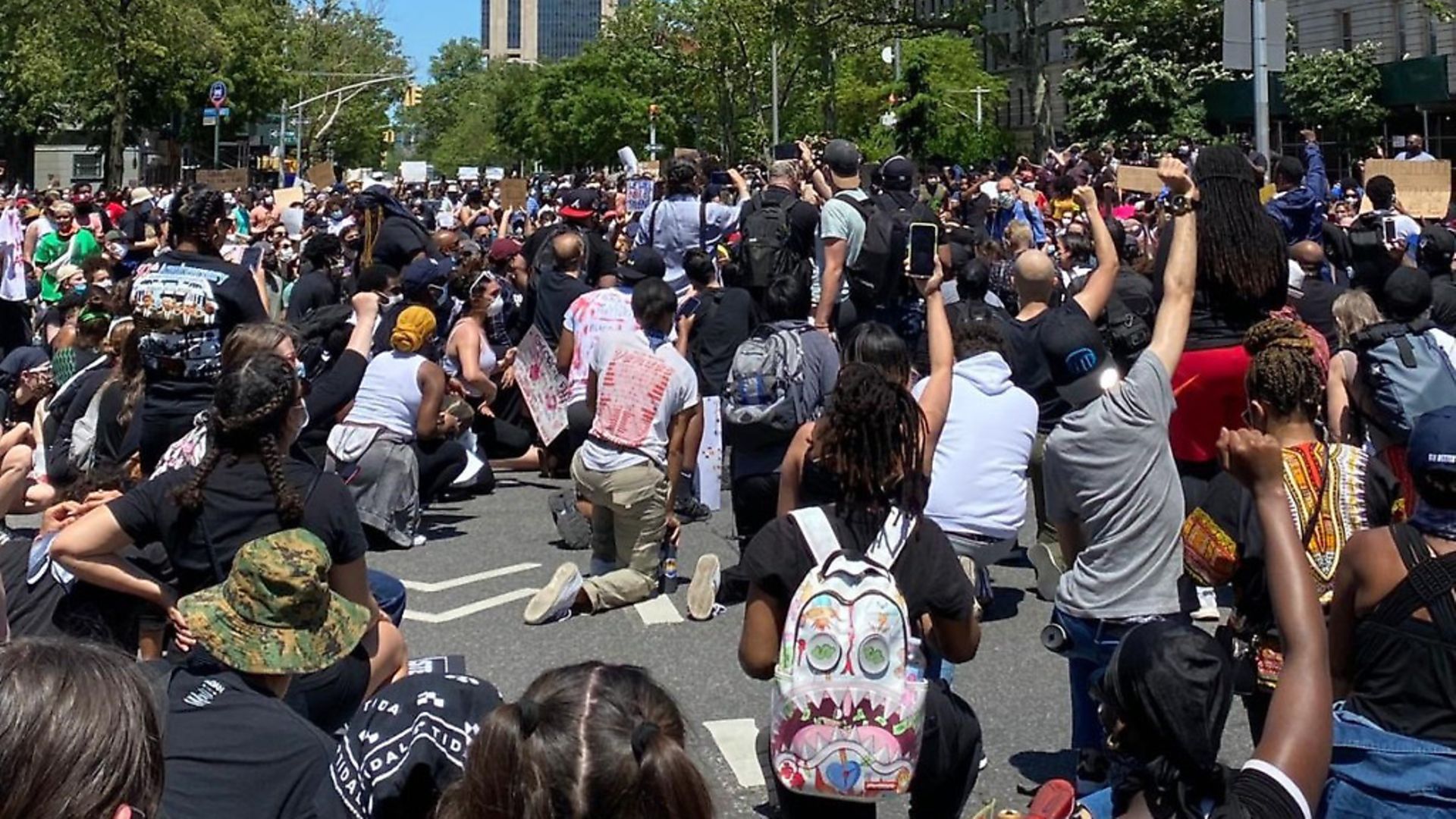
To protect black lives we must abolish or radically reform the police, says a former press secretary to Boris Johnson
Disappointingly, much of the commentary about the protests in the US condemns looting and violence and fails to examine the root causes. In western societies, the police force has historically perpetrated violence against black communities, whether through direct violence or through the insidious, systematic, ingrained racism seen in the likes of the Stephen Lawrence case and which is still widespread in both the police and society at large.
Many commentators say we need to retrain the police. The answer, rather, is to reduce their use and start thinking about justice and safety first and punishment second.
Occasionally, this has engendered a state of rebellion among black communities and their allies in the US and UK. It is cold-blooded to expect any group of people who are constantly terrorised not to react. It is cold-blooded to demonise them for rebelling against tiered oppression.
It is wrong to equate property violence to violence against people: the fight is against the constant threat of state-sanctioned violence that racism creates.
The callous public assassination of George Floyd has brought this back into public attention, but in the US last year more than 1,000 people were killed by police. Black people accounted for 24% of those killed, despite making up only about 13% of the population.
Phone cameras have brought to life the people behind those numbers in recent years: the killings were always happening, but now their sickening depravity is there for all of us to see. In the UK, there may be fewer deaths – but this does not reflect a more enlightened police force. It reflects the fact that it’s harder to kill somebody without a gun.
Violence and discrimination are structurally embedded into police behaviour. You are six times as likely to be stopped and searched by the police in England and Wales if you are black than if you are white.
Our system absolves law enforcement from repercussions. America, in particular, frees them from public accountability via union contracts that preemptively trade away rules and accountability mechanisms to which every other citizen is made to be compliant. This needs to stop at once.
The only way we’re going to stop this endless cycle of police violence is by creating alternatives and reinvesting police funding into programmes that actually work to build safer communities. The entire system of law enforcement needs to be pulled up from its roots and we all need to play an active role in moving towards a robust restorative justice model. The solution to ending police violence and cultivating a safer society lies in reducing the power of the police and their contact with the public.
In the US, where the need for action is most urgent, municipalities can begin by altering official protocol to replace police officers as respondents to certain kinds of emergencies, including – but not limited to – substance abuse, domestic violence, homelessness or mental health-related cases.
Health care workers or emergency response teams are better equipped to handle these incidents. Emergency calls reporting drug overdoses ought to be met by health care teams, with police deputising if called upon by health care teams. Restorative justice teams or violence interrupters can mediate situations where no-one’s safety is being threatened.
We need to build a society that relies upon the community to provide alternatives, rather than police to punish existing transgressions. I am calling for a total reimagining of protection: we must protect black lives, and that means we must abolish or radically reform the police.
Those who say the reform of police is inconceivable need to do their homework. Look at Washington D.C., where programmes like Violence Interrupters are in place. Staff members rely on personal outreach for information about potential violence and then mediate and diffuse. The aim is not to penalise, but to stop violent crimes before they begin.
Meanwhile in Durham, North Carolina, they invested in life-affirming services, not an unjustified expansion of the police force after activists successfully campaigned for zero police expansion.
In Dallas, the city is pioneering a crisis system where 911 calls involving mental health emergencies will be responded to by social workers, and in Austin, Texas, the Austin Justice Coalition continues to push the city council, advocating that it assign emergency medical services to respond to mental health calls instead of the police.
Minneapolis has spent years investing in reform to reduce police violence. Nothing has changed. The justice system does not work, has not worked and will not work for communities of colour in the US – and across western societies. This is because everything, from the judicial systems to the law itself, has been designed by a systemically racist society.
We need to reimagine public safety in ways that shrink the police force and prison system. We must instead prioritise education, housing, economic security, mental health and alternatives to conflict and violence.
The safest communities don’t have the most police officers, they have the most resources. It’s time that the idea of ‘protection’ applied to everyone in the US: police violence cannot be effectively addressed without completely reimagining the role of the police in our communities.
Ashish Prashar is a justice reform campaigner who sits on the Board of Exodus Transitional Community, Getting Out and Staying Out, Leap Confronting Conflict and the Responsible Business Initiative for Justice. He was press secretary to Boris Johnson during his 2008 and 2012 London mayoral election campaigns
Warning: Illegal string offset 'link_id' in /mnt/storage/stage/www/wp-includes/bookmark.php on line 357
Notice: Trying to get property 'link_id' of non-object in /mnt/storage/stage/www/wp-includes/bookmark.php on line 37






